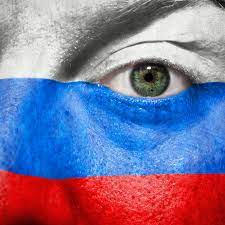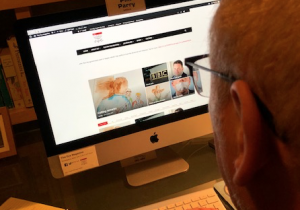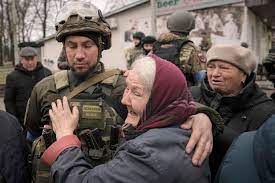- Return to sender - 20th February 2026
- Legal eagle - 19th February 2026
- Round Robin - 19th February 2026

As our Editor, Welshman Phil Parry has written many times a free and independent media is essential for a functioning democracy, although this does not exist in many states around the world, and it is now put centre stage by disturbing news that the Kremlin is setting up its OWN WhatsApp.
The more the merrier I say.
All these social media groups offer different platforms for alternative views – some journalistic.
Several countries do not like this, and one in particular is ratcheting up its crackdown, creating its own state Facebook (FB) etc. – Russia.

You get a particular (Kremlin sponsored) view of the world.
However there was no state WhatsApp until now, but Vladimir Putin has filled this idealogical void with a site called ‘MAX’.
This is a new ‘national messenger’ app created by a Russian firm closely controlled by the Kremlin.
WhatsApp (whose owner, Meta, is designated an extremist organisation in Russia) is especially popular with older people because of how easy it is to register and use.

It will be pre-installed on new devices, although the concept clearly stems from Asia’s super-apps, and particularly China’s WeChat, which is a pillar of daily life there.
Some 1.3 billion people use it not just for messaging but also for reading the news, booking travel, making medical appointments and paying bills.


It is also an instrument for censorship and surveillance, restricting material critical of the Chinese Communist Party (CCP). Police use it to snoop on dissidents, too.
Mr Putin no doubt craves such a tool, but the public’s appetite for a Russian WeChat is less certain.
More than 36 per cent of Russians already use Virtual Private Networks (VPNs); software that gives access to blocked content by making a device appear as if it is in another country.
There are fears that the new app will allow the authorities to hack into the phone’s microphone or even its camera.

Sadly this falls into a familiar pattern in Russia where state news is deemed acceptable, yet information from independent sources is not, with information coming to light about undercover journalistic groups that play an important role in assisting the Ukrainian authorities, as they try to repel Russia. Some of them (like The Eye) have NO state funding whatsoever, and operate on a purely freelance basis.
There is, for instance, InformNapalm.

This organisation was set up by journalists, an IT specialist as well as a dentist, and is proving to be a particular thorn in the side of the Russian military.
The Informnapalm.org website was created in March 2014 after the Russian military intervention in Ukraine and unlawful annexation of Crimea.


They’re all volunteers and they have conducted two major investigations into the shooting down of Malaysia Airlines Flight 17, as well as gathered evidence about the presence of Russian troops on Ukrainian territory (which was denied by Russia).
They collect and analyse OSINT-information, found in open sources, including on social networks.
InformNapalm’s investigation of the then Russian 53rd Artillery Brigade commander Colonel Sergei Muchkayev, suspected of killing the MH17 passengers and other atrocities, was crucial.

Their involvement in subverting a publicity photograph was central in identifying members of the 960th Assault Aviation Regiment.
Independent journalistic websites in democratic countries around the world (whose investigations are heartily disliked by the Russian authorities), include ones like Bellingcat.
It is a Netherlands-based investigative journalism group that specialises in fact-checking.

It was founded by British citizen journalist and former blogger Eliot Higgins in July 2014, and has published the findings of both professional and citizen journalist investigations into war zones, human rights abuses, and the criminal underworld.
In his first book Mr Higgins told how open source investigation has redefined reporting in the 21st century, and argued that the internet can be a force for good, despite bad actors, complacent technology firms and an explosion in alternative so-called ‘facts’.
The site’s contributors also publish guides to their techniques, as well as case studies.

he was killed
Bellingcat began as an investigation into the use of certain weapons in the Syrian civil war.
Its reports on the Russo-Ukrainian War (including the downing of the Malaysian flight), the Yemeni Civil War, the poisoning of Alexei Navalny and the poisoning of Sergei and Yulia Skripal, as well as the killing of civilians by the Cameroon Armed Forces have attracted international attention.

More power to their elbow I say.
Sometimes all the abuse and empty legal threats I suffer (and I’m sure Bellingcat as well as InformNapalm get the same) are worth enduring!
But Mr Putin likes to keep an eye on things – hence Russia’s very own version of WhatsApp.
The memories of Phil’s astounding, decades long award-winning career in journalism (when investigations exposed huge wrong-doing, but abuse invariably followed) as he was gripped by the rare neurological disabling condition Hereditary Spastic Paraplegia (HSP), have been released in a major book ‘A Good Story’. Order it now.









